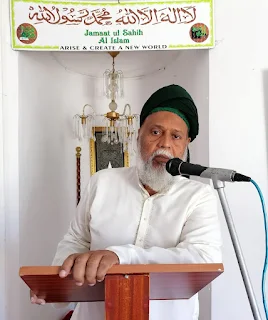“In the name of Allah, the Most Gracious, the
Most Merciful.
Indeed, We sent the Qur’an down during the Night of Decree. And
what can make you know what the Night of Decree is?
The Night of Decree is
better than a thousand months.
The angels and the Spirit descend therein by
permission of their Lord for every matter. Peace it is until the emergence of
dawn.” (Al-Qadr 97: 1-6).
Like you all know, we have already entered the
third part of the month of Ramadan, whereby in one of these nights there is a
extremely special night which is worth more than a thousand months of blessings
which we usually receive through our Ibaadat (all acts of worship) in
normal times.
Like mentioned in a
Hadith, our Noble Prophet Hazrat Muhammad (pbuh) has said: “This is a month, the first part of which brings Allah’s
Mercy, the middle of which brings Allah’s forgiveness, and the last part of
which brings emancipation from the hellfire.” (Bukhari). In another Hadith, Hazrat Anas bin Malik (ra)
narrated that the Messenger of Allah stated about the month of Ramadan: “This
month (of Ramadan) has begun and therein is a night better than one
thousand months. So, any one deprived of its blessings is actually deprived of
all goodness. Indeed, He is truly deprived who is kept away from its good.” (Ibn
Majah, Mishkat).
Behind the Divine Scheme on Laila-tul-Qadr
In the light of these verses of the Quranic Chapter
Al-Qadr (the Destiny/Decree) and the Hadiths which I have put
before you today, it shall be good if I explain to you once again how these
verses were revealed. Years come and go but the words and teachings of Allah
and those of His Messenger (Rasul) shall ever remain flawless and whole,
and it is my duty to repeat these teachings to you for all this forms part of
our history as Muslims, such a history which needs to remain alive till the Day
of Judgement, such a history which shall encourage all Muslims to give their
time, means and lend their helping hands to enable Islam to shine in the world.


_Islamic_Arts_Magazine.JPG)





















